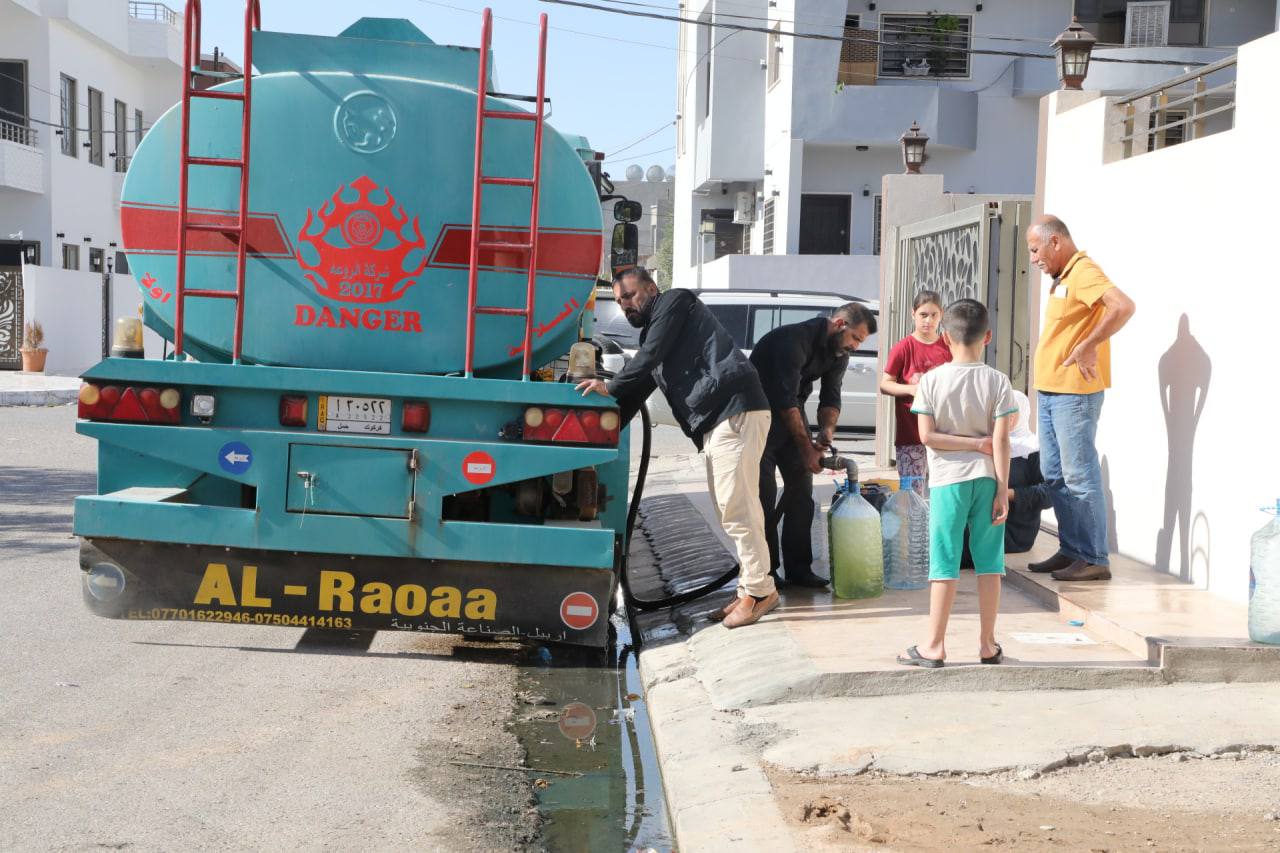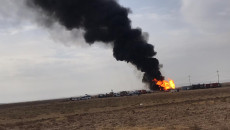The (state-run) Oil Products Distribution Company in Kirkuk announced that its warehouses are full of kerosene, but no date has yet been set for its distribution to citizens.
According to field follow-ups to the (KirkukNow) reporter, the kerosene distribution yard is witnessing preparations to start the process of distributing oil to the areas of Kirkuk during the winter.
An informed source in the Kirkuk branch of the Oil Products Distribution Company confirmed to (KirkukNow) the completion of preparations for the distribution of kerosene, but the company is waiting for a date and distribution mechanism to be determined by the Iraqi Oil Ministry.
In previous years, the process of distributing kerosene to citizens started at the beginning of October.
The source, who requested anonymity for not being authorized to speak to the media, indicated that Kirkuk's warehouses are full of kerosene.
"14 million liters of kerosene have been stored and the distribution process will start whenever a date is set for that."
The price of a 200-litre barrel of kerosene in the free market currently ranges between 200 thousand and 250 thousand Iraqi dinars IQD ($170) (IQD1250/liter), and this price varies from one city to another according to the quality of the kerosene.
According to the previous procedures, an amount of 10,000 IQD is received from each family for every 50 liters of kerosene (200IQD/liter).
The main method for heating in Iraq is Kerosene heaters as the electricity is not on round the clock and gas heaters are not common.
The source says that each family will initially receive 100 liters (half a barrel) of oil according to the coupon, and then distribute an additional 150 liters in three phases over the winter season, with 50 liters in each phase, bringing the total to 250 liters.
The source pointed out that citizens can still receive two more portions by last year coupon.
According to statistics obtained by (KirkukNow) from the Oil Products Distribution Company, 350,000 families in Kirkuk have received kerosene last year.
Kirkuk, Iraq’s second largest oil reserves, located 238 kilometers north of Baghdad, is an ethnically mixed province for 1.7 million Arabs, Kurds and Turkmens. It has long been at the center of disputes between Baghdad and the Erbil.
Kirkuk exports millions of crude oil barrels a month generating hundreds of million dollars revenues for the national budget, yet alike the rest of the country, the public services of power, water, health, education and sewage are limited due to years of war and corruption.






